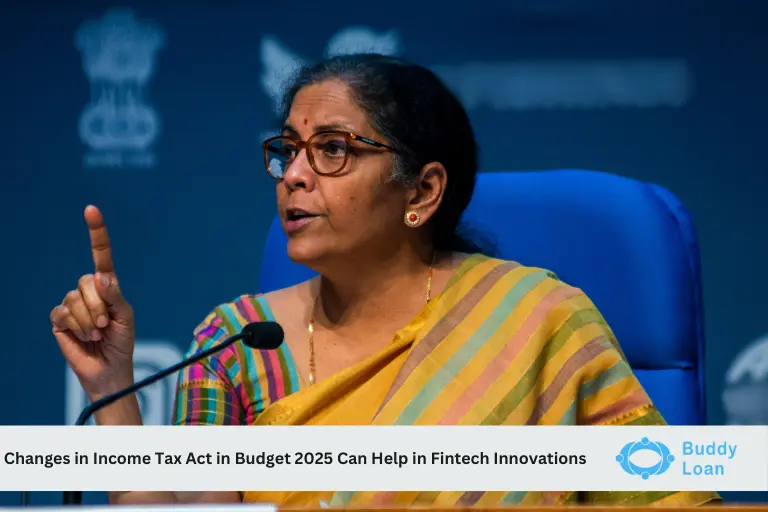The much-anticipated Budget 2025 could mark a defining moment for India’s financial landscape with the proposed overhaul of the 63-year-old Income Tax Act. This move has the potential to simplify compliance, encourage innovation, and foster a fintech-driven economy.
A Simpler Tax Code for a Digital-First India
For decades, businesses and individuals alike have known the Income Tax Act for its complexity, which, as a result, poses compliance challenges. However, now, with a new directive for a new Direct Tax Code on the table, the focus is shifting toward creating a more streamlined and transparent framework that is not only easier to understand but also simpler to navigate.
From a fintech perspective, this simplification is more than just a legal adjustment—it’s a critical step toward building a taxpayer-friendly digital ecosystem.
| A simpler tax code in India could indeed accelerate fintech adoption, especially in sectors like lending, payments, and investment platforms. These sectors require regulatory clarity and compliance efficiency to thrive, and streamlined taxation would reduce operational complexity and encourage growth. |
Impact on Fintech Businesses and Tax Compliance
1. Enhanced Compliance Through Automation
Fintech platforms rely on technology to make tax filing and compliance seamless. A simplified tax law could further reduce the burden of interpretation and manual interventions, paving the way for advanced automation tools that cater to individuals and businesses.
2. Boost to Digital Lending and Investment Platforms
The removal of ambiguities and “provisos” in the law could foster greater trust in fintech-led solutions, particularly in digital lending, wealth management, and tax-saving instruments. For instance, the integration of a clearer tax structure could enhance offerings like Buddy Loan, enabling smarter tax planning for borrowers and investors.
3. Ease of Doing Business
Simplified tax compliance could encourage global fintech players to enter the Indian market, strengthening India’s position as a fintech hub. Regulatory clarity fuels innovation, and fintech startups can focus on developing solutions rather than navigating cumbersome tax frameworks.
Also Read:- Tax Saving Tips For Small Businesses
| Note: The aforementioned information is based solely on the anticipated impact of Budget 2025 on the digital ecosystem within the fintech sector and is intended for informational purposes only. |
Fintech’s Role in Bridging the Gap
The overhaul of the Income Tax Act also opens up opportunities for fintech players to become key enablers in helping taxpayers transition to the new framework. Fintech platforms are uniquely positioned to bridge the gap between the government’s intent and taxpayer adoption, offering personalized tax advisory tools and real-time compliance monitoring.
Read More on Income Tax
What’s at Stake for the Fintech Ecosystem?
While the proposed overhaul offers immense potential, the challenges of transitioning from a 63-year-old law to a modern tax framework cannot be ignored. Officials face the task of balancing simplicity with precision to avoid misinterpretations and disputes, which could adversely impact businesses.
However, if the government succeeds in creating a robust and forward-thinking tax structure, it could unlock:
- Improved cash flow for businesses with faster and simpler tax compliance.
- Greater financial inclusion as simplified tax policies attract more digital-first users.
- Accelerated growth of India’s fintech sector, which thrives on clarity and efficiency.
Our Message to the Fintech Community
As a fintech body, we believe that a simplified Income Tax Act isn’t just about compliance; rather, it’s about building a tax ecosystem that not only ensures adherence but also empowers businesses, individuals, and innovators.
- Ensure collaborative dialogue by involving fintech players in the review process.
- Prioritize digital enablement, making tax filing intuitive and accessible.
- Use this opportunity to align tax policies with India’s fintech vision, fostering innovation and financial inclusion.
Know more about Income Tax Slabs to understand the latest rates and exemptions
Also Read: Fintech’s Growing Tax Footprint & Digital Finance Powers India’s Revenue Engine
The Road Ahead
The proposal for a new tax code in Budget 2025 is, therefore, a historic opportunity to redefine how taxes are understood, filed, and managed in India. Also read on No Tax Up to ₹12 Lakh Income. Moreover, for the fintech community, this is a call to action to not only play a proactive role in educating but also in adapting and innovating in response to the changes.
As stakeholders in India’s digital transformation, therefore, we’re excited about the potential of this reform to unlock new opportunities for fintech solutions and simplify financial processes for every Indian taxpayer. Moreover, together, we can create a future where compliance is seamless, technology bridges gaps, and businesses thrive in a simplified regulatory environment. Ultimately, let’s build a smarter, simpler, and more innovative financial future for India.
Having any queries? Do reach us at info@buddyloan.com




